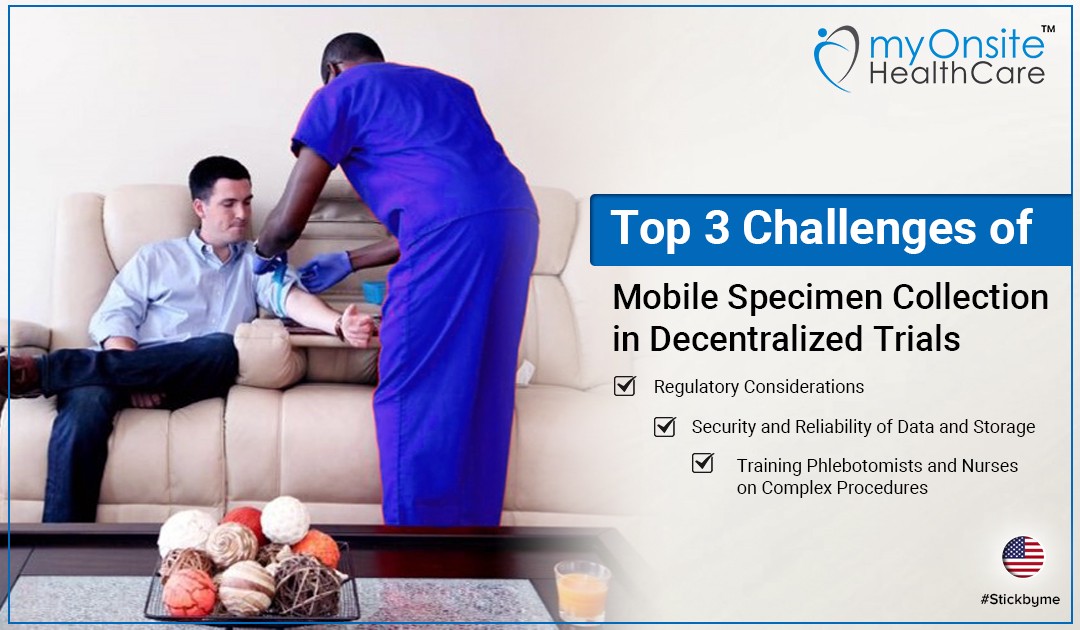When it comes to clinical trials, one of the biggest obstacles is finding a way to execute them cost-effectively. The problem becomes even more complex when you have to test a medication or treatment on patients located remotely.
For instance, it’s difficult for investigators and sponsors to coordinate between sites when patients live in different locations. In such scenarios, decentralizing the testing process is not just helpful—it’s essential.
This topic can be confusing and overwhelming for most new users. That’s why we’ve created this series with details about the top challenges of Mobile Specimen Collection in decentralized clinical trials to be aware of and the solutions to focus on.
Challenge 1: Regulatory Considerations
Implementation of mobile specimen collection in a clinical trial may require approval from regulatory authorities and ethical review committees on Compliance. Compliance can involve demonstrating the validity and reliability of the mobile specimen collection methods and ensuring that the rights and interests of trial participants are protected.
This question often arises with Biomarker studies, especially in isolating Cell pellets with Buffy Coat at the Patient’s Home or Site. The Regulatory Authorities have often had this question to find alternative methods of refrigerated Centrifuges as they are pretty expensive and bulkier to carry and how the sites would maintain the stability. Alternatives of using dry Ice and mobile mini freezers for transportation have also worked in many studies, thereby maintaining regulatory IRB Standards.
Challenge 2: Security and Reliability of Data and Storage
Mobile specimen collection relies on transmitting data and specimens from patients’ homes or other remote locations to central laboratories or testing facilities. It is important to ensure that this data is transmitted securely and that the integrity of the specimens is maintained. The answer lies in one common solution – Implementing Cloud-based platforms with HIPAA regulations and 21 CFR Compliance.
Challenge 3: Training Phlebotomists and Nurses on Complex Procedures
Mobile specimen collection may require specialized equipment and procedures specific to studies, and healthcare providers may need specific training. It may be necessary to provide training and support to ensure that providers can effectively use tools and equipment for mobile specimen collection and follow proper protocols. Training can be either remote or in-person. However, it is necessary to ensure the healthcare professional has the skills required to handle complex blood processing.
Overall, while mobile specimen collection in decentralized clinical trials can offer numerous benefits, it is important to carefully consider and address these challenges to ensure the success and integrity of the trial. All of the above challenges can be easily addressed by designing your trials with appropriate customized solutions to the challenges. Watch out for our next article on the guide to Mobile specimen collection in a decentralized way and how myOnsite Healthcare helps in implementing them.

